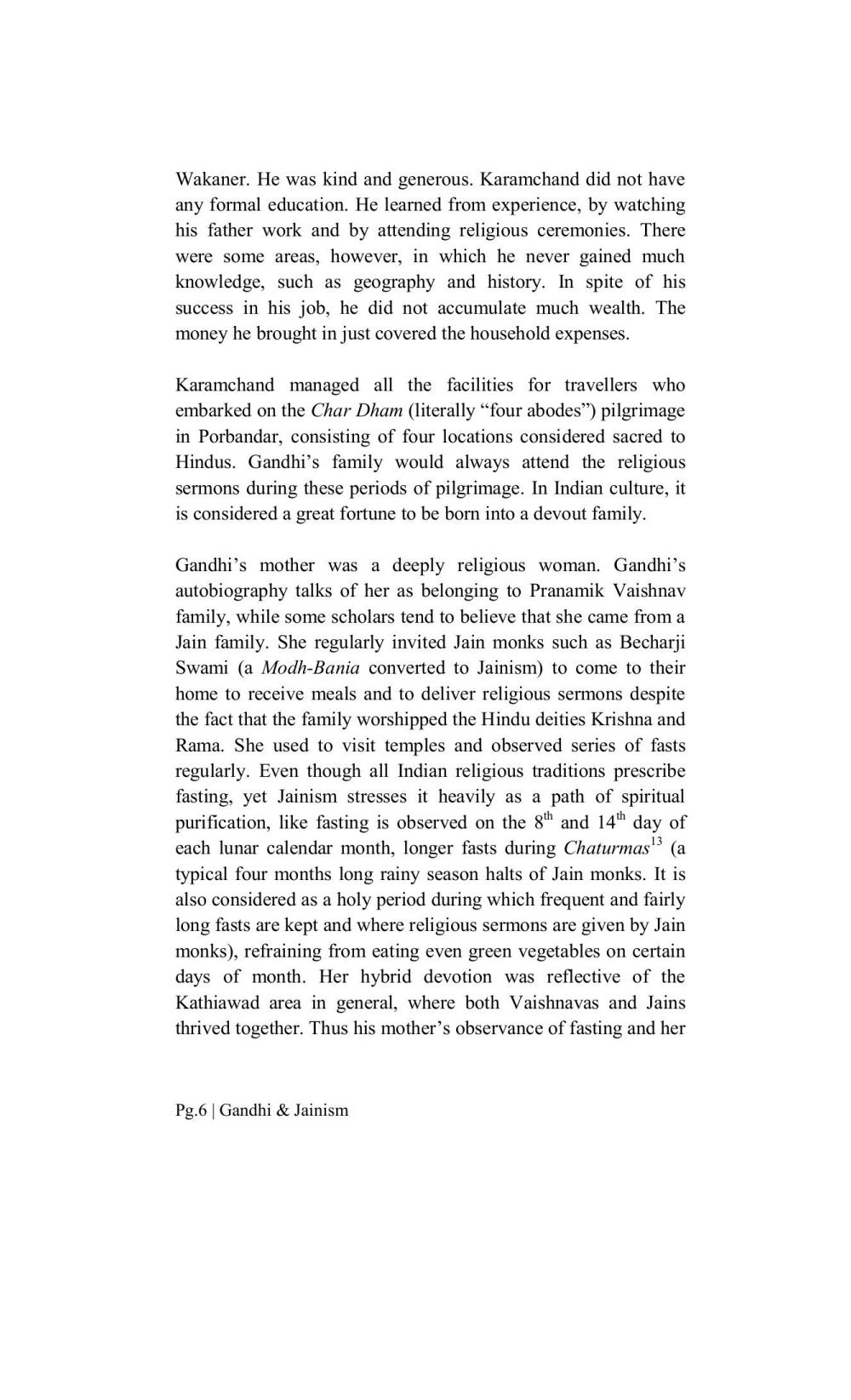________________
Wakaner. He was kind and generous. Karamchand did not have any formal education. He learned from experience, by watching his father work and by attending religious ceremonies. There were some areas, however, in which he never gained much knowledge, such as geography and history. In spite of his success in his job, he did not accumulate much wealth. The money he brought in just covered the household expenses.
Karamchand managed all the facilities for travellers who embarked on the Char Dham (literally "four abodes") pilgrimage in Porbandar, consisting of four locations considered sacred to Hindus. Gandhi's family would always attend the religious sermons during these periods of pilgrimage. In Indian culture, it is considered a great fortune to be born into a devout family.
Gandhi's mother was a deeply religious woman. Gandhi's autobiography talks of her as belonging to Pranamik Vaishnav family, while some scholars tend to believe that she came from a Jain family. She regularly invited Jain monks such as Becharji Swami (a Modh-Bania converted to Jainism) to come to their home to receive meals and to deliver religious sermons despite the fact that the family worshipped the Hindu deities Krishna and Rama. She used to visit temples and observed series of fasts regularly. Even though all Indian religious traditions prescribe fasting, yet Jainism stresses it heavily as a path of spiritual purification, like fasting is observed on the 8th and 14th day of each lunar calendar month, longer fasts during Chaturmas (a typical four months long rainy season halts of Jain monks. It is also considered as a holy period during which frequent and fairly long fasts are kept and where religious sermons are given by Jain monks), refraining from eating even green vegetables on certain days of month. Her hybrid devotion was reflective of the Kathiawad area in general, where both Vaishnavas and Jains thrived together. Thus his mother's observance of fasting and her
Pg. 6 | Gandhi & Jainism




